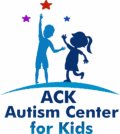Alternatives to ABA Therapy For parents and caregivers of children with autism, finding the right therapeutic approach is crucial. While Applied Behavior Analysis (ABA) is widely recognized, it is not the only option available. Many families seek alternative therapies that align with their child’s unique needs and preferences. One such effective and engaging alternative is music therapy.
Understanding Music Therapy and Autism
Music therapy is a structured, evidence-based therapeutic approach that uses music to address emotional, cognitive, social, and communication challenges associated with autism spectrum disorder (ASD). By integrating rhythm, melody, and sound, music therapy helps individuals with autism express themselves, improve focus, and enhance their overall well-being.
How Music Therapy Supports Individuals with ASD
- Enhancing Communication Skills
Many children with autism experience difficulty in verbal and non-verbal communication. Music therapy provides an engaging platform for self-expression through singing, playing instruments, or even listening to music. - Improving Social Interaction
Group music sessions encourage cooperation, turn-taking, and joint attention, fostering essential social skills in a relaxed and enjoyable setting. - Reducing Anxiety and Stress
Music has a calming effect, helping children manage sensory overload and emotional distress. - Boosting Cognitive Abilities
Learning rhythms and melodies can enhance memory, attention span, and cognitive flexibility.

Alternatives to ABA Therapy-The Science Behind Music Therapy
Music therapy is backed by scientific research that highlights its effectiveness in enhancing brain function and emotional well-being. Studies show that music stimulates multiple areas of the brain, including those responsible for language, emotion, and motor control. In children with autism, engaging with music can activate these brain regions, leading to improved speech development, emotional regulation, and social engagement.
Researchers have also found that structured musical interventions can lead to increased levels of oxytocin, a hormone associated with bonding and social connection. This explains why many individuals with autism who struggle with social interactions respond positively to music therapy.
Key Topics in Music Therapy for Autism
1. Music Therapy and Autism Spectrum Disorder
This topic explores how music therapy is tailored to individuals with ASD, addressing their sensory needs and communication barriers. Trained music therapists create personalized sessions to match a child’s unique preferences and sensitivities, ensuring a comfortable and productive therapeutic experience.
2. Autism and Music
Many individuals with autism have a natural affinity for music. Some may possess perfect pitch, an exceptional memory for melodies, or an ability to play instruments intuitively. This section delves into the relationship between autism and musical talent, highlighting case studies of autistic individuals who have excelled in music.
3. Autism in Focus: Music Therapy Reviews
A review of various music therapy programs, providing insights into their effectiveness and real-life success stories. Parents and caregivers share their experiences with music therapy, describing the changes they have observed in their children’s behavior, communication skills, and emotional well-being. This section also includes an overview of different music therapy techniques, such as Neurologic Music Therapy (NMT) and the Orff Approach.
4. Therapeutic Music for Autism
A deep dive into specific therapeutic music techniques and their impact on children with ASD. This section explores methods such as:
- Improvisational Music Therapy (IMT): Encourages spontaneous musical expression to enhance creativity and emotional processing.
- Receptive Music Therapy: Uses pre-recorded music to promote relaxation and focus.
- Active Music Making: Involves playing instruments, singing, or composing music to develop motor skills and self-expression.
Practical Applications of Music Therapy
Music Therapy in Schools
Many schools incorporate music therapy into special education programs to support students with autism. Music therapy sessions in schools often focus on enhancing communication skills, improving classroom behavior, and promoting social engagement through group activities.
At-Home Music Therapy Strategies
Parents can integrate music therapy techniques at home by:
- Creating personalized playlists with calming or stimulating music.
- Encouraging their child to play a musical instrument.
- Singing songs together to build communication and social engagement.
- Using rhythm-based activities like clapping games to develop motor skills.
Music Therapy and Sensory Processing
Many children with autism experience sensory processing challenges, making it difficult to engage with their environment. Music therapy can help regulate sensory input, providing a structured yet flexible way for children to process sounds and movement.
Finding the Right Music Therapist
When looking for a qualified music therapist, it is essential to consider:
- Certifications: A board-certified music therapist (MT-BC) has undergone specialized training in music therapy techniques.
- Experience with Autism: Not all music therapists specialize in working with autistic individuals, so finding someone with relevant experience is beneficial.
- Approach: Some therapists focus on structured interventions, while others use more improvisational methods. Discussing your child’s needs with a therapist can help determine the best approach.
Music Therapy Success Stories
Numerous success stories highlight the transformative impact of music therapy on children with autism. For example:
- A 7-year-old non-verbal child began humming and eventually singing words after six months of music therapy.
- A teenager with autism who struggled with social interactions found a sense of belonging in a community drumming group.
- A child with severe anxiety learned to use music as a self-regulation tool, significantly reducing meltdowns.
Conclusion
Music therapy offers a valuable alternative to ABA therapy, providing a creative, engaging, and effective way to support individuals with autism. Whether used alongside other therapies or as a standalone approach, music therapy has the potential to transform lives by fostering communication, emotional regulation, and social skills. If you’re considering alternative therapies for your child, exploring music therapy could be a harmonious step forward.
Discover more from Autism Services and therapy for Kids by counseling
Subscribe to get the latest posts sent to your email.

You must be logged in to post a comment.